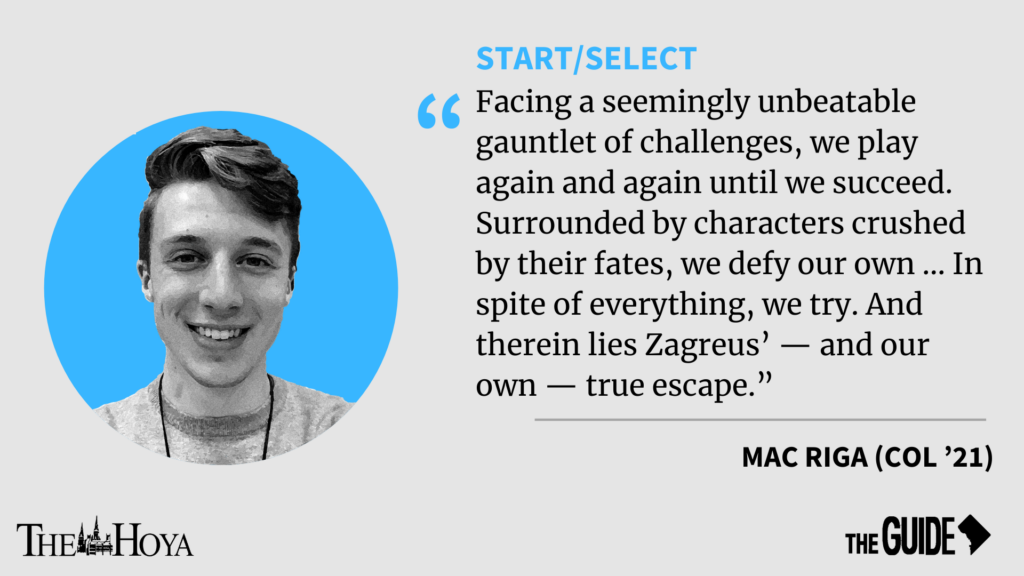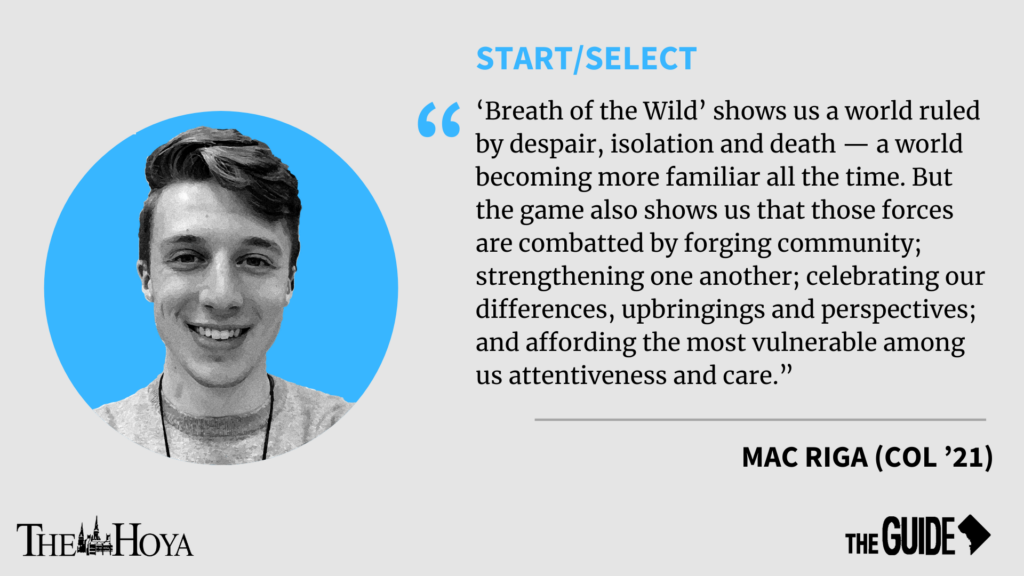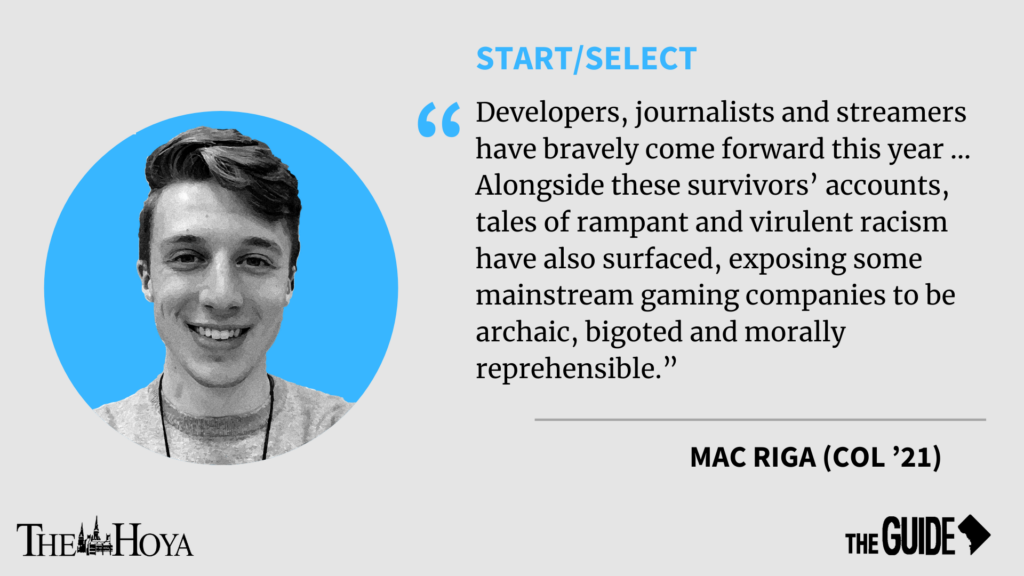2020’s “Hades” is a game about choice in a world without it.
I mean that quite literally; developer Supergiant’s newest title sees the game’s protagonist, the Greek god Zagreus, attempting to escape the underworld to uncover the truth about his mother. In this world of myth, the three Fates are very real. Any number of powerful figures — from Achilles, the greatest warrior of the Greeks, to Nyx, the primordial personification of night, to even Hades himself, Zagreus’ father and lord of the dead — defer to the Fates’ insurmountable will.
Still, Zagreus rebels, and every layer of Supergiant’s masterclass in game development is meticulously crafted to emphasize the significance of this rebellion.
The game is a Roguelike, a genre defined by traversing unfamiliar levels randomly crafted with familiar elements, gaining currency and upgrades. Should the player be killed, they are stripped of their upgrades as well as most of their resources, and they must restart from scratch. The genre is famously difficult and perfectly embodies a seemingly hopeless struggle against forces far beyond the player’s own ability.
But with every failure, something is gained. Success can take the form of an excerpt of tightly written dialogue, persistent currency for permanent upgrades or even just familiarity with enemy patterns. The player is compelled to try again and again, thanks to the game’s perfectly balanced and constant stream of motivators: one more run and the player might unlock an upgrade; one more run and you might be able to beat a tricky boss. This process continues until the credits roll.
The setting also highlights the importance of Zagreus’ escape attempts. The world of Greek mythology is a grim one, filled with tragic figures who try and fail to defy the Fates. Figures like Orpheus, Eurydice, Sisyphus and Patroclus — all of whom were unable to subvert their tragic fates — lament their own destiny while aiding the player in their quest.
And yet Zagreus, in his own quest to rewrite divine providence, helps tweak those tragic figures’ stories as well. With his help, lovers Achilles and Patroclus, eternally torn from each other in their myth, are able to communicate again. Orpheus, removed from his muse Eurydice, is inspired once more to compose. Even Sisyphus is given reprieve from his eternal torment and is at last allowed to rest.
Perhaps the most poignant way the game conveys its central theme is through the narrative of the stakes of Zagreus’ quest. It quickly becomes apparent to the player Zagreus is not trying to break free from the underworld to spite his father, but rather to find his long-lost mother, Persephone. Upon discovery, Persephone is overjoyed to see Zagreus and to discover he had not died at birth. But this alone is not enough to sway her to return home. In a world full of mythical foes dead set on preventing Zagreus’ escape, the greatest enemy is a familiar one: a broken family.
But Zagreus never gives up. With a determination bordering on stubbornness, he fights his way out of the underworld nine more times. Finally, against all odds, he successfully persuades his mother to return home and his father to relent. Ultimately, he convinces their family to try again, Fates be damned.
However, Zagreus does not make it out in the end. Being a chthonic god, he literally cannot live for longer than a few minutes in the physical world. The “game over” screen, a familiar sight by the end of the player’s journey, is correct: “There is no escape.” In many ways, what you have been told all along is correct: the Fates and their prescriptions are unavoidable.
Facing insurmountable odds and impossible situations, Zagreus tries to beat them all the same. It is the story of humanity told within a godly setting. There is a trope in ancient Greek literature that even the bleakest endings — and there are many — have “Elpis,” or a glimmer of hope. Zagreus’ determination to escape, or the player’s determination to win, is that Elpis, that flickering flame that refuses to go out.
And the player is asked, and is indeed motivated, to play a part in this Elpis. Facing a seemingly unbeatable gauntlet of challenges, we play again and again until we succeed. Surrounded by characters crushed by their fates, we defy our own. Seeing a family torn apart seemingly irreparably, we dare to hope we might be made whole again. In spite of everything, we try. And therein lies Zagreus’ — and our own — true escape.
Mac Riga is a senior in the College. START/SELECT appears online every other week.





















